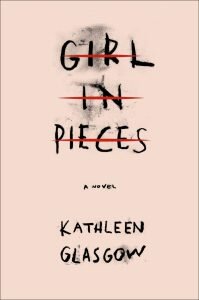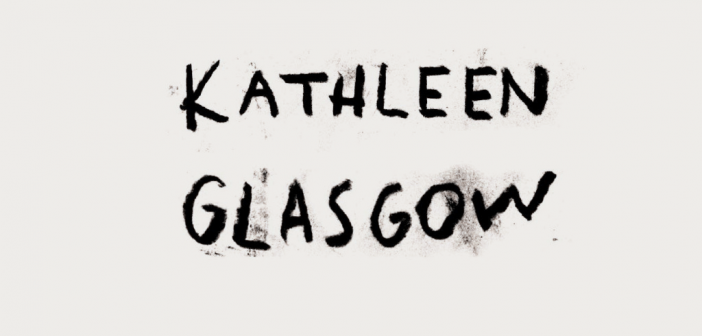 Kathleen Glasgow’s debut novel Girl in Pieces follows begins with Charlie Davis, a girl in a hospital center for self-harm who has “cut her words out.” But Glasgow’s debut novel doesn’t follow the normal tropes plagued by stories relating to mental illness and self-harm. Above all things, Girl in Pieces is a story about healing – and healing means different things to different people.
Kathleen Glasgow’s debut novel Girl in Pieces follows begins with Charlie Davis, a girl in a hospital center for self-harm who has “cut her words out.” But Glasgow’s debut novel doesn’t follow the normal tropes plagued by stories relating to mental illness and self-harm. Above all things, Girl in Pieces is a story about healing – and healing means different things to different people.
“I really wanted to avoid the whole ‘character is sad, character goes to hospital, character meets good doctor, character feels better, and is released’ kind of trope,” said Glasgow. “One, because I’m a firm believer that ‘better’ means different things to different people and two, I really wanted to talk about people, and kids, who have no insurance and can’t get any treatment.”
Written in short, lyrical bursts, Girl in Pieces takes the reader on a gripping story of heartbreak, loss, recovery, and eventual peace. Plagued by abuse and self harm, Charlie ends up on the streets and is forced to fight for survival. After being released from the Creeley Center, she winds up in Arizona, forced to survive on her own again, but this time with a driven purpose: to recover.
Although Charlie begins the book alone, it doesn’t stay that way for long. Forming a network with people she trusts, and risking heartbreak, became incredibly important to her journey. The support from friends and coworkers enables her to find a place to stay and maintain a job, which were huge landmarks for her.
Beginning the book without any kind of network was crucial for Glasgow to the story.
“I really wanted to take her on a journey of discovery and art and creative people and finding her own voice and her own way. She has to make her own family, just like so many homeless kids out there today.”
Perhaps the most important piece of Charlie’s journey is her reconnection with art. Several of the characters in the novel use art and music as a way to deal with their inner demons and express themselves. A local artist named Felix is able to give Charlie a second chance to trust in her art and heal herself.
“One of the things I wanted to write about was the notion of shame and how we shame our girls when they hurt themselves, but we put boys and men on a pedestal. A girl cuts herself, she gets put in the hospital. A girl gets too drunk, she’s a slut and deserves what’s coming to her. If a boy is suicidal, he’s a passionate poet who feels too much. A boy drinks too much, he’s just ‘letting off steam.’ So there are a number of characters in the book, like Felix, who show Charlie different ways of thinking about her scars and what she’s done to herself. Instead of being ashamed, can she take a kind of pride in her soul and in her survival? He takes her art, and her pain, seriously, which doesn’t often happen for women and girls.”
Glasgow called on her own personal experience to fully flesh out Charlie’s story. She wrote the story to call attention to the two million young women in America who self harm – girls like her – and to encourage the reader to find something that gives them solace and to continue their journey.
“When I decided to write this particular story, the story of a girl who harms herself, I knew that I wanted to be as honest as possible about what it means to feel that alone. I didn’t want to romanticize self-harm or depression, I didn’t want Charlie to magically get better because of therapy, or because she falls in love. And I knew that in order to be honest and realistic about Charlie’s situation, I was going to have to write certain things from my experience that might be triggering for some readers. There’s no way around that. But reading about what Charlie goes through will also help some readers tremendously, too, so I had to find a balance.”
Forming a support group, practicing self-care, and finding “your solace” are crucial pieces to recover.
“The first step is in talking to someone. Find a friend. Find a counselor. Join a support group. Take advantage of crisis lines. There is always someone who will listen to you. I also found solace in books like Girl, Interrupted, Prozac Nation, and Speak, books that deeply and honestly explore what it means to be a girl in this world, particularly if you suffer from a mental disorder, have been sexually traumatized, or struggle with addiction. Books can be a safe place in which to explore yourself and what’s happening to you.”
Girl in Pieces releases August 30.
If you or anyone you know is suffering from self harm, please take advantage of these resources:
Crisis Text Line: Text START to 741-741
National Suicide Prevention Hotline:
To Write Love on Her Arms: https://twloha.com/find-help/local-resources/
National Runaway Hotline:




